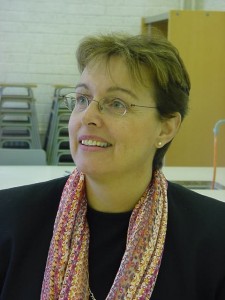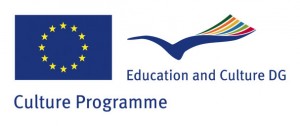Dr Miguel Moital of the School of Tourism has just returned from Brazil having undertaken the first block of fieldwork for a Santander funded project entitled,
“The internationalisation of the Brazilian tourism, hospitality and events research: Barriers and opportunities to publishing in international (English language) journals”
The economic growth of the past 15 years in Brazil has had a profound impact on the country’s tourism industry, further establishing tourism as an important economic activity. While Brazil attracted only just over five million international tourists in 2010, the country has a substantial tourism industry which is driven by a buoyant domestic market. The Tourism Ministry estimates that in 2009 there were 175 million domestic trips.
As the tourist industry matures, so does the need to develop a more in-depth understanding of the economic, social and environmental dimensions of the tourism phenomenon. There has been substantial growth in terms of education provision, but academic research has remained somewhat parochial, with much being published in the growing number of Brazilian tourism journals and some in foreign journals, whether Portuguese or Spanish language journals (mainly South American, but also Spanish). Very few have been published in English language journals. The end result is that Brazilian research and researchers are little known by the International community.
Therefore the aim of this research is to examine the barriers and look for opportunities to expand the international audience for research based on the Brazilian tourism, hospitality and events industries and in so doing develop a valuable international partnership.



 Watch this excellent short video from BU’s
Watch this excellent short video from BU’s  BU’s International Centre for Tourism and Hospitality Research (ICTHR) is delighted to be hosting the second global conference to explore real-world issues.
BU’s International Centre for Tourism and Hospitality Research (ICTHR) is delighted to be hosting the second global conference to explore real-world issues. Congratulations are due to Viachaslau Filimonau of the
Congratulations are due to Viachaslau Filimonau of the 



 Although a major contributor to life at BU, the study of Tourism is often wrongly maligned as being a niche subject on the periphery of more established areas of study such as Business & Management and Geography. Well, in the UK alone over 100 institutions offer HE courses at undergraduate level including “top tier” universities such as Exeter, Surrey, Strathclyde and Stirling with many more competing for students and staff across Europe and beyond with major concentrations of activity in North America, the Middle East, South East Asia and Australia and New Zealand where tourism is not only a significant area of academic interest but also of valuable income, foreign exchange earnings and employment.
Although a major contributor to life at BU, the study of Tourism is often wrongly maligned as being a niche subject on the periphery of more established areas of study such as Business & Management and Geography. Well, in the UK alone over 100 institutions offer HE courses at undergraduate level including “top tier” universities such as Exeter, Surrey, Strathclyde and Stirling with many more competing for students and staff across Europe and beyond with major concentrations of activity in North America, the Middle East, South East Asia and Australia and New Zealand where tourism is not only a significant area of academic interest but also of valuable income, foreign exchange earnings and employment. Tomorrow, Tuesday 27th September 2011, is World Tourism Day and to celebrate this week on the research blog is Tourism Week. Every day the research blog will be highlighting stories about the excellent work going on in Bournemouth University’s
Tomorrow, Tuesday 27th September 2011, is World Tourism Day and to celebrate this week on the research blog is Tourism Week. Every day the research blog will be highlighting stories about the excellent work going on in Bournemouth University’s 













 ESRC Festival of Social Science 2024 Open Call – Deadline for Applications Thursday 16 May
ESRC Festival of Social Science 2024 Open Call – Deadline for Applications Thursday 16 May We can help promote your public engagement event or activity
We can help promote your public engagement event or activity Horizon Europe News – December 2023
Horizon Europe News – December 2023